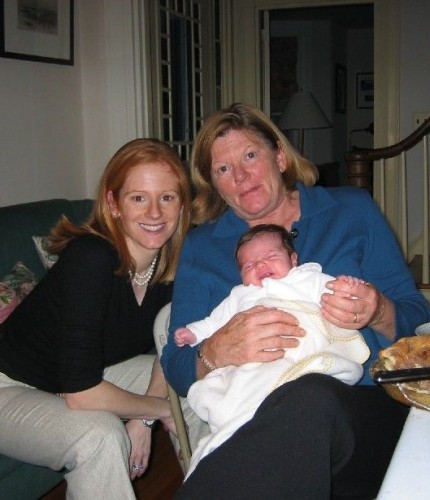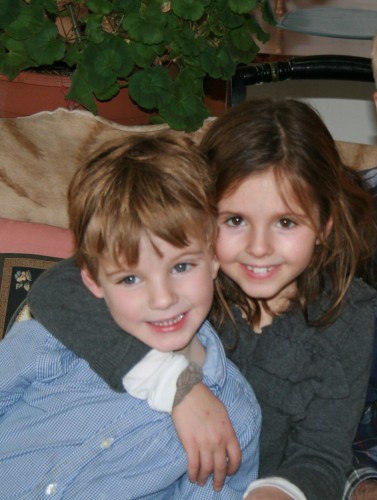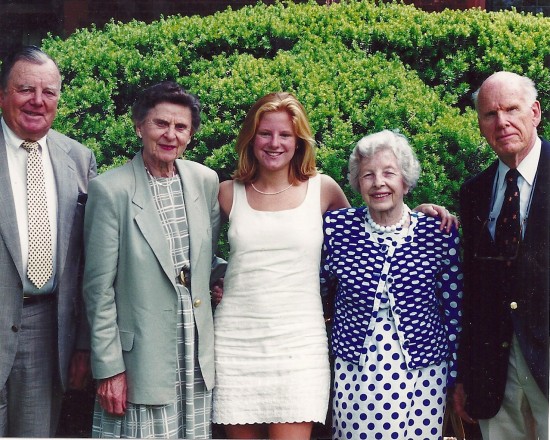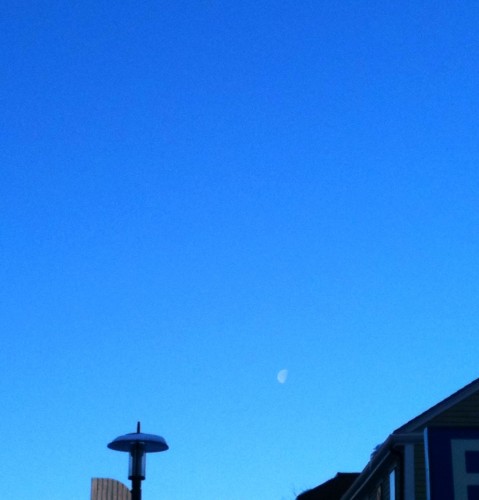
As usual, Kelly made me cry. She also made me smile, nod vigorously in agreement, and think furious. Her post, mothersisterdaughterfriend: woman touched something deep inside of me. She writes about the emotional post-birth weeks when she fell in love with her daughter – and when she fell in love with her mother.
When I saw my beloved, magnificent, miracle-baby in my mother’s arms, the fraught kaleidoscope of mother-daugther angst cleared to reveal a truth that levelled me. The way I overwhelmingly love, adore, fear, and worship my daughter, how I know that she is the best of me and more, is the way my mother loves me….I am that loved.
I am that loved.
I remember those weeks, and I know intimately that fraught kaleidoscope. I remember vividly a day in the first couple of weeks of Grace’s life, when Mum came over to stay with her so that I could try to sleep. I lay in my bed, my daughter asleep on the floor above me and my mother in the kitchen cooking on the floor below me. I was flanked by my own matrilineage, and I could not sleep for the pounding in my chest. I felt the generations collapsing and expanding at the same time, felt a visceral awareness of the women from whom I came and of the girl I’d just birthed.
I’ve always been fascinated by mothers and daughters. I am one of two girls. I wrote my thesis in college on the mother-daughter relationship (and wrote in my acknowledgements to my mother: “Especially thanks to you, Mum, for having the patience to allow me to study so intently this relationship. The examined bond grows every stronger”). The preface to my thesis, which was titled “the main thing” (for Anne Sexton’s line “a woman is her mother. That’s the main thing”) was Margaret Atwood’s stunning poem, Spelling, about a mother watching a daughter play with words.
I fully admit that I was afraid the universe was going to respond to my unambiguous passion by giving me only boys. But then I had Grace. My grace.
And I am immensely blessed to be witnessing the flowering of my daughter’s relationship with my mother. Is there any greater privilege? I suspect not. I won’t lie: there are absolutely issues and deep bruises and hurts in my own maternal relationship that are triggered now that I’m a mother myself. No question. But there are also reservoirs of love that I did not realize I had, accessed through the extraordinary experience of watching my mother and my daughter together.
My senior year in college I wrote my thesis in a tiny study carrel in Firestone Library. The bulletin board front wall of the carrel was full of tacked-up index cards filled with quotations about mothers and daughters, creativity and procreativity, the dense and complicated morass in which I now tread. I could never have imagined how animate all of these black-and-white words would become for me, how viscerally I would live the ideas and concepts I blithely dissected in my thesis. Kelly’s post reminded me of this, in particular her stunning evocation of the moment we realize, staring, wild with love, at our own baby that our mothers loved us like that. This sublime experience folds us in love and makes us look at our own mothers (if we are fortunate enough to have them near, and I know there are those who are not) with a renewed intimacy and intensity.
Anne Sexton, in a letter to her daughter Linda, writes “Talk to my poems, and talk to your heart – I’m in both.” Reading that, my eyes fill with tears, overwhelmed at the image of my 21 year old self quoting that, understanding only half of the equation. I knew well the daughter role, but I had no idea of the richness and ambiguity that motherhood would bring. I know now what I did not know then: I exist in my daughter’s heart (and in my son’s), and my mother exists in mine. Put another way, as Kelly says, I now know how I am loved.


 I started an essay years ago with this sentence:
I started an essay years ago with this sentence:
